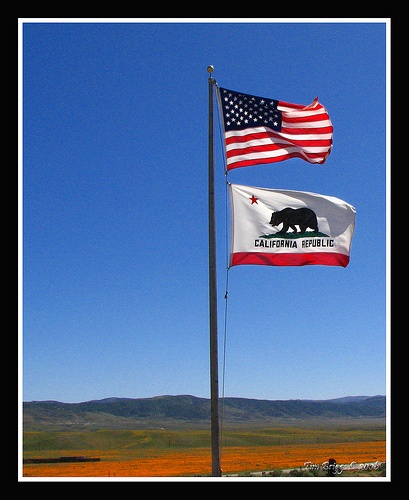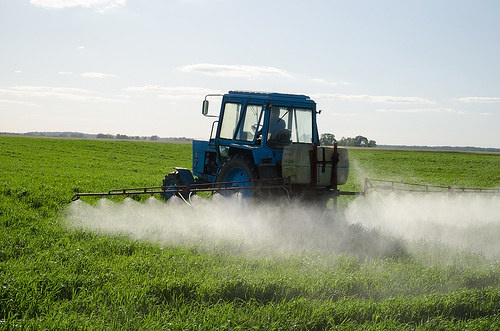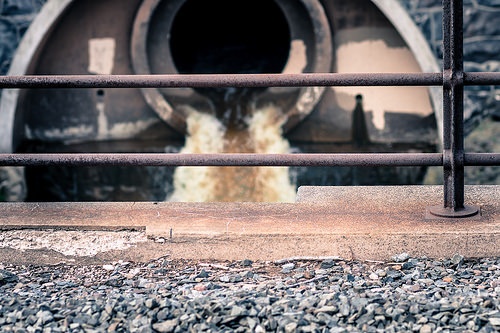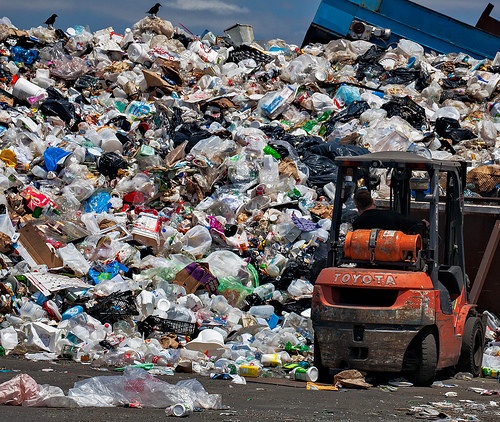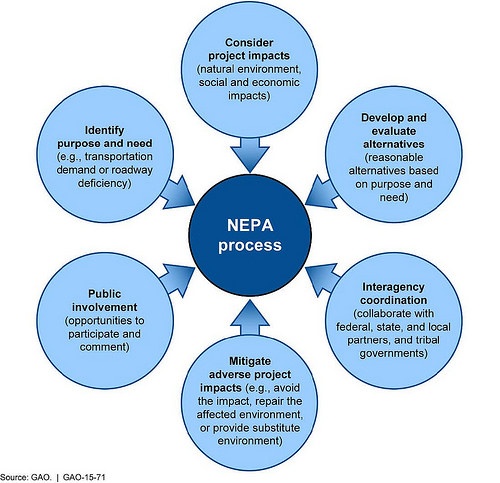California is one of many jurisdictions around the planet attempting to reduce greenhouse gas (GHG) emissions to 1990 levels. Globally, this goal appears in the United Nations Framework Convention on Climate Change (UNFCCC) – signed in 1992 when the 1990 goal translated roughly into a goal to keep GHG emissions flat. California adopted its own 1990 goal in “AB 32” legislation enacted in 2006, by which time annual statewide emissions had increased significantly, and when business-as-usual emissions growth was projected to continue. As later quantified by the California Air Resources Board (ARB), AB 32 amounted to a commitment to reverse the state’s path, reducing GHG emissions by 15% instead of allowing them to rise by 15%. In July, ARB announced that the state has reached this 2020 goal, two years early.
Read MoreAudit, Compliance and Risk Blog
California Returns Statewide Greenhouse Gas Emissions to 1990 Levels
Posted by Jon Elliott on Tue, Sep 04, 2018
Tags: California Legislation, Environmental risks, Environmental, Greenhouse Gas, ghg
UST Compliance: Are You Ready For The October 2018 Requirements?
Posted by Specialty Technical Consultants on Thu, Aug 30, 2018
 Kathy McKinney-Tovar, STC Senior Analyst
Kathy McKinney-Tovar, STC Senior Analyst On July 15, 2015 (80 FR 41566), EPA published the first major revision to the federal underground storage tank (UST) regulations since 1988. The 1988 UST regulation required owners and operators to have spill, overfill, and release detection equipment in place; the 2015 amendments add additional requirements to ensure that this equipment is functioning properly and is adequately maintained to effectively prevent a release. Table 1 below summarizes the operation and maintenance provisions that apply October 13, 2018.
In addition to imposing new operation and maintenance requirements, the 2015 amendments address UST systems deferred in the 1988 UST regulation. USTs storing fuel for use by emergency power generators have their deferral removed, with EPA adding requirements for release detection by October 13, 2018. Airport hydrant systems (AHS) and UST systems with field-constructed tanks (FCT) lose their deferral status and must also comply with Subpart K by October 13, 2018 (see Table 1 below). Previously EPA removed the deferral for wastewater treatment tanks, USTs containing radioactive material, and emergency generator UST systems at nuclear power generation facilities and reclassified them under a new category, “partially excluded UST systems.” Owners and operators of these tanks must continue to comply with Subparts A and F as they always have, as well as new installation requirements.
The 2015 amendments also include provisions for operator training (as outlined in Table 1). The majority of states, however, adopted requirements regarding operator training under the UST grant guidelines of the Energy Policy Act of 2005 (Act). The UST provisions of the Act focus on preventing releases and expand eligible uses of the Leaking Underground Storage Tank (LUST) Trust Fund. States that receive grants to help pay for the cleanup of leaking UST sites had to meet the requirements or lose funding. Since nearly all states receive funding to help pay for cleanup, the vast majority previously adopted requirements regarding operator training following the Act’s grant guidelines. EPA is allowing these states to retain their regulations, although some states have chosen to make changes to more closely align with the 2015 amendments.
Compliance with the 2015 amendments depends on whether a state has state-plan approval (SPA). Currently, 38 states and territories have received SPA to operate their UST programs in lieu of EPA’s requirements. Facilities in these states are not required to comply with the 2015 amendments until the state revises its regulations. Owners and operators in the 12 non-SPA states (AK, AZ, CA, FL, IL, KY, MI, NJ, NY, OH, WI, and WY) and 4 territories need to follow their state or territory requirements as well as meeting the EPA’s amendments according to the time frames listed in Table 1.
As of July 6, 2018, 21 states (17 SPA states and four non-SPA states) have either published state-specific regulations that adopt the 2015 amendments or have incorporated by reference the federal regulations. A summary of these state programs and their adoptions status can be found on the Resources page of the STC website.
Table 1 – Summary of the 2015 UST Amendments
| New Requirement | Implementation Time Frame |
| Designation and training of A, B, and C operations. | Owners and operators must begin meeting these requirements by October 13, 2018 |
| Release detection for UST systems storing fuel for use by emergency power generators. | |
| Subpart K applicability for AHSs and FCTs (release detection, upgrade, general operating requirements, and operator training requirements) | |
| Spill prevention equipment inspections every 3 years. | Owners and operators must conduct the first test or inspection by October 13, 2018 |
| Release detection equipment testing annually | |
| Monthly walkthrough inspections of spill prevention equipment and release detection equipment | |
| Annual walkthrough inspections of containment sumps and hand held release detection equipment. |
Specialty Technical Publishers (STP) provides a variety of single-law and multi-law services, intended to facilitate clients’ understanding of and compliance with requirements. These include:
Read MoreTags: Environmental risks, Environmental, EPA, UST
Federal Enforcement Falls in President Trump’s First Year
Posted by Jon Elliott on Tue, Aug 28, 2018
President Trump and his agency heads have been clear about their intent to reduce regulatory “burdens” on individuals and organizations. Meanwhile, however, they have tended to talk tough on crime. However, a new report shows that civil and criminal enforcement against corporations fell dramatically during their first year in office, compared with enforcement during President Obama’s term. In July, the nonprofit advocacy group Public Citizen published “Corporate Impunity – ‘on Crime’ Trump Is Weak on Corporate Crime and Wrongdoing.”
Read MoreTags: Business & Legal, Environmental risks, Environmental, EPA, corporate social responsibility
Feds Formally Propose to Roll Back Future Auto Emission Standards
Posted by Jon Elliott on Tue, Aug 21, 2018
 The Trump Administration has taken the next step toward rolling back automobile standards intended to reduce greenhouse gas (GHG) emissions. On August 2, the Environmental Protection Agency (EPA) and the National Highway Traffic Safety Administration (NHTSA) issued a joint proposal to replace emission standards previously adopted to tighten emission standards during model years 2021-2026, captioned the “Safer Affordable Fuel-Efficient (SAFE) Vehicles Rule for Model Years 2021-2026 Passenger Cars and Light Trucks.” The agencies present a formal proposal to extend existing emission standards through those years, but also seek comments on several variations on this proposal.
The Trump Administration has taken the next step toward rolling back automobile standards intended to reduce greenhouse gas (GHG) emissions. On August 2, the Environmental Protection Agency (EPA) and the National Highway Traffic Safety Administration (NHTSA) issued a joint proposal to replace emission standards previously adopted to tighten emission standards during model years 2021-2026, captioned the “Safer Affordable Fuel-Efficient (SAFE) Vehicles Rule for Model Years 2021-2026 Passenger Cars and Light Trucks.” The agencies present a formal proposal to extend existing emission standards through those years, but also seek comments on several variations on this proposal.
Tags: Environmental risks, Environmental, EHS, EPA, Greenhouse Gas, ghg, CAA, Transportation
Among its many provisions, the 2016 Amendments to the Toxic Substances Control Act (TSCA) require EPA to compile and report an inventory of mercury supply, use, and trade in the United States. (I’ve written about programmatic changes to TSCA by the “Frank R. Lautenberg Chemical Safety for the 21st Century Act,” here, here, and here.) EPA was directed to publish an initial inventory, covering elemental mercury and mercury compounds, in April 2017, and to publish updates at least every three years thereafter.
Read MoreTags: Environmental risks, Environmental, Hazcom, tsca
EPA Schedules Compliance Deadline for Revised Agricultural Worker Training Requirements
Posted by Jon Elliott on Tue, Jul 24, 2018
In November 2015, the Environmental Protection Agency (EPA) adopted significant amendments to the Agricultural Worker Protection Standard (WPS) that EPA administers using its Federal Insecticide Fungicide and Rodenticide Act (FIFRA) authority -- FIFRA provides national pesticide regulation, and the WPS is intended to ensure that workers know how to protect themselves when applying pesticides. EPA set compliance deadlines for most revised provisions on January 2, 2017 or January 2, 2018, but left the compliance deadline for expanded training open until the agency could develop and publish training materials. On June 22, 2018, EPA published notice that these materials are ready, giving employers until December 19 to upgrade their training programs accordingly.
Read MoreTags: Employer Best Practices, Employee Rights, Training, Environmental risks, Environmental, EPA, Hazcom
EPA Proposes to Rescind Last Administration’s Long-Delayed Accidental Release Prevention Revisions
Posted by Jon Elliott on Tue, Jul 17, 2018
In the last week before President Obama left office, the Environmental Protection Agency (EPA) completed a multi-year review of its Accidental Release Prevention (ARP) program for toxic catastrophe prevention, and adopted significant expansions of ARP requirements (I wrote about them here). EPA proposed ARP revisions in March 2016 (I blogged about them here). Then, when President Trump took office, EPA reversed course, repeatedly deferring the effective date of those revisions while the agency reviewed them. In May 2018 EPA completed its review, and published a proposal in the Federal Register to rescind almost all these expansions and return ARP requirement to those in place before 2017. EPA also included an alternative proposal that retained a few more elements, and requested public comment on both versions no later than July 30, 2018.
Read MoreTags: OSHA, Environmental risks, Environmental, EPA, Greenhouse Gas, ghg, Hazcom, effluent, mact
On May 30, the Environmental Protection Agency (EPA) repealed a number of regulations governing recycling of secondary materials, which EPA adopted as parts of a major rulemaking effective July 2015, but which were rejected by a federal court in decisions issued in July 2017 and March 2018. These rules apply the Resource Conservation and Recovery Act (RCRA) by creating exemptions from the “Definition of Solid Waste” to define a number of potentially hazardous wastes as “hazardous secondary materials”, and to establish special rules to allow generators and qualified third parties to recycle and recover qualifying materials. (I summarized the larger 2015 rules here). The remainder of this note identifies EPA’s latest changes.
Read MoreTags: Environmental risks, Environmental, Hazcom, RCRA
Is it Time to Change How Federal Agencies Review Environmental Impacts?
Posted by Jon Elliott on Tue, Jul 03, 2018
The National Environmental Policy Act (NEPA) of 1969 requires federal agencies to assess the environmental effects of their proposed actions, and incorporate this information into their decisions. Agencies have each adopted their own review regulations, which focus on the search for “significant impacts,” and on alternatives and mitigation measures that will allow an agency to accomplish its goals. This all sounds good, but what does it all mean? For example, which impacts might be “significant?” How many alternatives should be considered, with what attendant costs and benefits?
Read MoreTags: Environmental risks, Environmental
Facebook and its chief executive, Mark Zuckerberg, are being criticized far and wide for the company’s lax privacy practices after it was revealed that the political data firm Cambridge Analytica had used a seemingly innocuous personality test to collect data on 87 million Facebook users, which it combined with data from other sources to develop psychological profiles that were used in support of President Trump’s 2016 campaign. A number of lawsuits have been filed against the site over privacy issues and the Cambridge Analytica incident in particular.
Read MoreTags: Business & Legal, Internet, corporate social responsibility, directors & officers, social media

